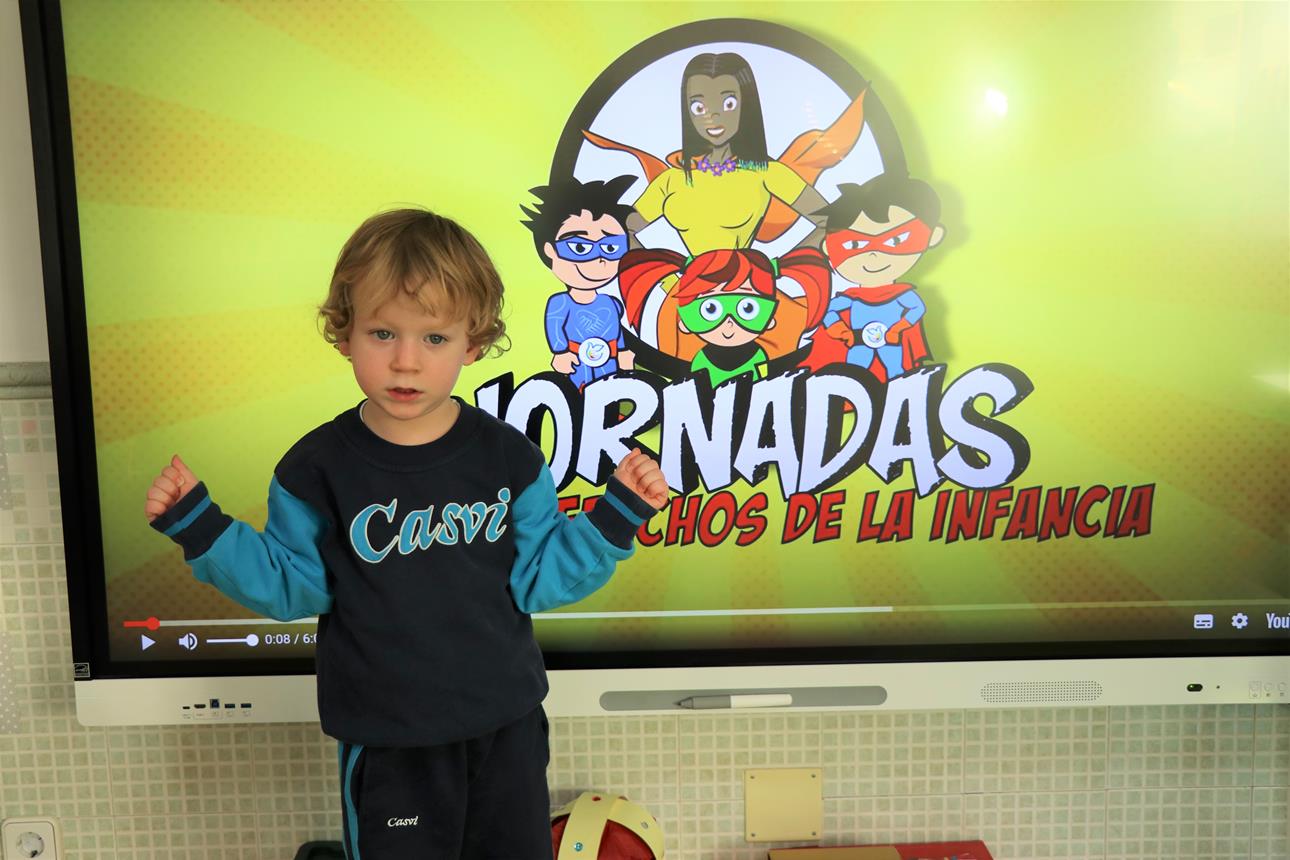Early schooling is a crucial journey in children’s lives. During the 3-6 years stage, the foundations are laid for their holistic growth. In this article, we will explore the challenges, the solutions and how Colegio Privado Internacional Eurocolegio Casvi addresses this vital stage. From cognitive development to social skills, we accompany the little ones on their way to a bright future.
PROBLEMS OF EARLY SCHOOL FAILURE
Lack of schooling in the 3-6 years stage (the second cycle of pre-school) can have long-lasting consequences on children’s cognitive, emotional and social development. Without a solid foundation, they will face difficulties in their subsequent educational path.
These are the problems that arise when children do not have access to early education:
NEGATIVE IMPACT ON CHILDREN'S COGNITIVE AND SOCIO-EMOTIONAL DEVELOPMENT
The absence of schooling can negatively affect children’s emotional development. Interaction with other children and adults in an educational setting is essential for cultivating social and emotional skills.
MOVEMENT AND TIME CONTROL HABITS
Early schooling support provides opportunities for physical development and motor skills acquisition. Children learn to move, coordinate their movements and develop healthy habits.
COMMUNICATION AND LANGUAGE
Interaction with peers and educators in the second cycle of Infant Education is fundamental for the development of language and communication. Children learn to express themselves, understand instructions and participate in conversations.
UNEQUAL EDUCATIONAL OPPORTUNITIES
Early schooling at this stage of early childhood education encourages interaction with other children, which is essential for learning to share, cooperate and resolve conflicts. Children also acquire basic guidelines for coexistence and mutual respect.
DISCOVERY OF THE ENVIRONMENT
The school provides a rich environment for learning experiences. Children explore their environment, discover the natural and social world around them, and develop a deeper understanding of their surroundings.
VALUES EDUCATION
Early schooling in the second cycle of Pre-school is an opportunity to inculcate values such as tolerance, respect, solidarity and responsibility. Children learn to live with diversity and to appreciate differences.
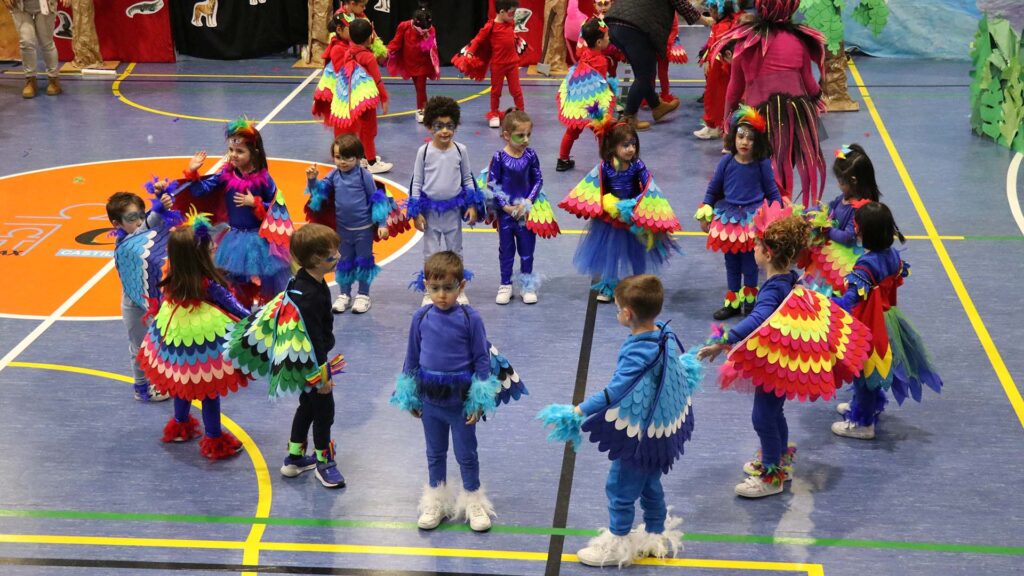
AWARENESS OF THE IMPORTANCE OF EARLY SCHOOLING
Early schooling in the second cycle of pre-primary education is a determining factor in children’s development, and statistics, education experts, governmental and health institutions support its importance.
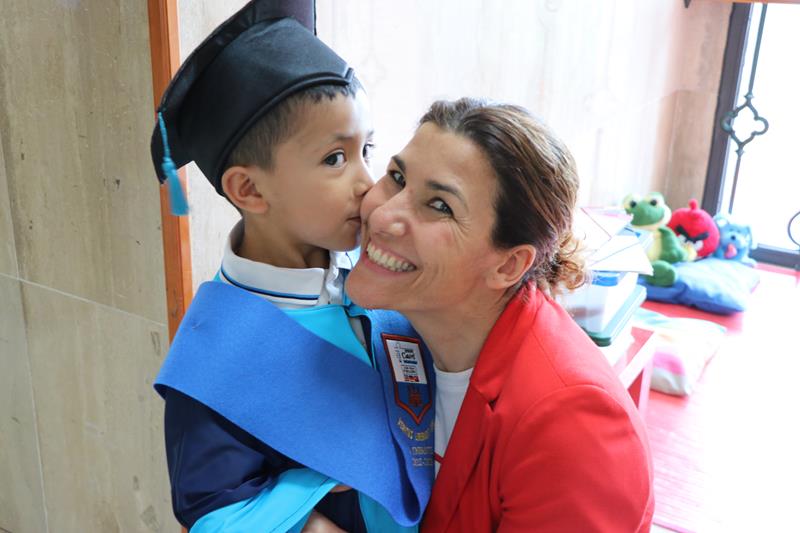
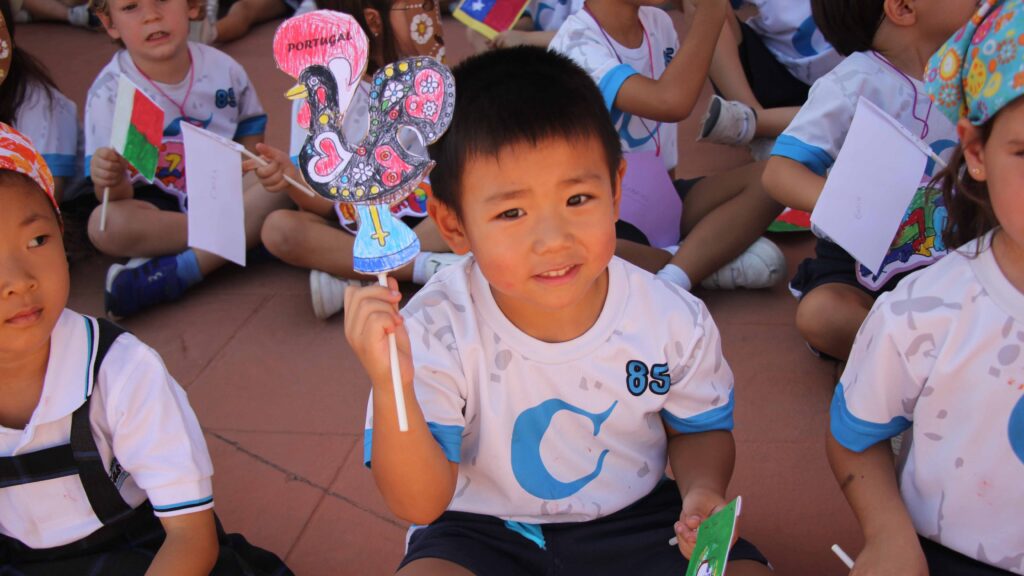
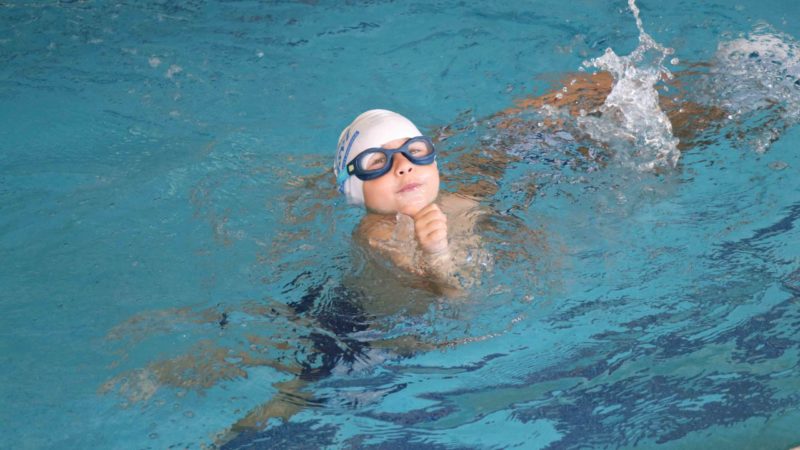
STATISTICS
According to data from the Ministry of Education and Vocational Training, the enrolment rate in the first cycle of Pre-school Education(0-3 years) has reached its highest level since records have been kept, standing at 45.6%. This figure is key to the equity of the education system and reflects the growing awareness of the importance of Early Childhood Education in Spain.
In addition, Spain exceeds the OECD average in the enrolment rate for zero to three year olds, which stands at 33%. This indicates that, although there is progress, there is still room for further promotion of Early Childhood Education in Spain.
EDUCATION EXPERTS' VIEWS ON THE BENEFITS OF EARLY SCHOOLING
Early schooling is not only based on statistical data, but also on the experience and knowledge of experts in the field of education. Nobel laureate James Heckman has emphasised the importance of early education in children’s cognitive and non-cognitive development. His research supports the need for investment in early childhood education.
GOVERNMENTAL AND HEALTH INSTITUTIONS
Support for schooling does not rest solely on the shoulders of schools and families. Government institutions and health organisations play a crucial role in this task.
- The Ministry of Health recognises that Early Childhood Education in Spain is one of the main social determinants of health. Its focus is on health promotion in schools, addressing aspects such as disease prevention, healthy eating, physical activity and mental health.
- Health Promoting Schools: This model is based on a WHO/UNESCO initiative.. In Spain, it is part of the Red SHE (Schools for Health in Europe Network). This approach seeks to transform schools into healthy environments for living, learning and working.
At the state level, the Ministry of Education, Vocational Training and Sports, together with the Ministry of Health and the Working Group of Health Promoting Schools, work together to promote these schools.
PROMOTING COMPULSORY SCHOOLING AT THE EARLY CHILDHOOD EDUCATION STAGE
Early Childhood Education is a crucial stage in children’s development.
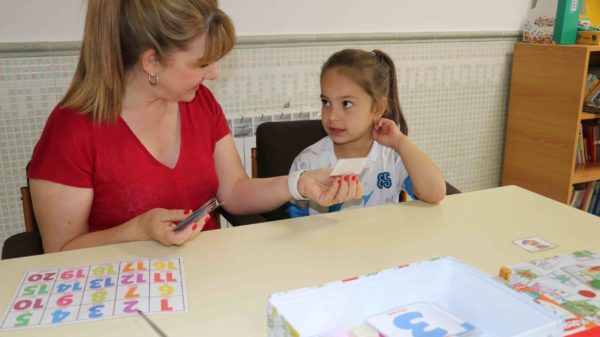
SOCIAL AND ECONOMIC BENEFITS OF INVESTING IN CHILDREN'S EDUCATION AS A UNIVERSAL RIGHT
It is organised in two cycles, each with its own characteristics:
First Cycle of Pre-school Education (0-3 years)
This first cycle of pre-school education runs from birth to 3 years of age. It is a very important stage, as it contributes to the balanced development of children’s affective, motor, cognitive, communication and language skills. During this cycle, exploration, sensory stimulation and the development of basic skills are encouraged. Children learn to move, communicate and interact with their environment.
Second Cycle of Pre-school Education (0-3 years)
This cycle extends from 3 to 6 years of age. It is a voluntary stage, but fundamental to prepare children for primary education, promoting cognitive development, creativity, autonomy and socialisation. Children acquire essential skills for future learning.
Inquiring, expressing, representing and sharing from the first year of life, allow us to have a quality education based on values.
HOW TO ADDRESS EARLY SCHOOLING. EXAMPLE: CASVI VILLAVICIOSA
Families play a crucial role in supporting their children’s early schooling. It is important that parents are informed about the importance of early childhood education and are actively involved in the educational process of their children. This includes providing a stimulating home environment, encouraging exploration and learning, and establishing fluid communication with educators.
Eurocolegio Casvi, located in Villaviciosa de Odón, Madrid, is a private international school which covers from Pre-school to Baccalaureate, including the International Baccalaureate (IB). Its educational approach is based on excellence, and in this case, its commitment to three very important aspects stands out.
- Prioritisation of the Infant Education stage: Eurocolegio Casvi recognises the importance of the early years in children’s development. It therefore focuses on providing a holistic education that fosters creativity, curiosity and a love of learning from an early age.
- IB methodology: The school follows the International Baccalaureate methodology, which promotes a holistic and active approach to teaching. This involves not only content mastery, but also social, emotional and critical thinking skills.
- Multilingualism: In addition, Eurocolegio Casvi offers curricular subjects in several languages, including English, German, Chinese and Spanish for foreigners.
COMMITMENT OF THE EDUCATION COMMUNITY TO PROMOTING EARLY SCHOOLING
Pre-school programmes
Eurocolegio Casvi International Private School also has the First Cycle of Infant Education. This is why, from the age of one, its pupils are in a structured environment where children can learn, play and socialise. Benefits include cognitive development,
Recreational and creative activities
From an early age, it is good to encourage play and creativity. Both aspects are essential in early childhood education. Play activities, such as art, music, symbolic play and sensory exploration, stimulate children’s holistic development.
Individualised support
Each child has unique needs. Providing individualised support is key to addressing specific challenges. This may include speech therapy, emotional support.
In-service training for teachers
Educators should receive ongoing training in pedagogy, child development and teaching strategie Constant updating is essential in order to offer an innovative, quality education. And that is what happens at Eurocolegio Casvi International Private School, with continuous courses on various subjects. Above all, on IB methodology.
Our aim is to prepare our pupils for the International Baccalaureate Diploma Programme with every guarantee of success.
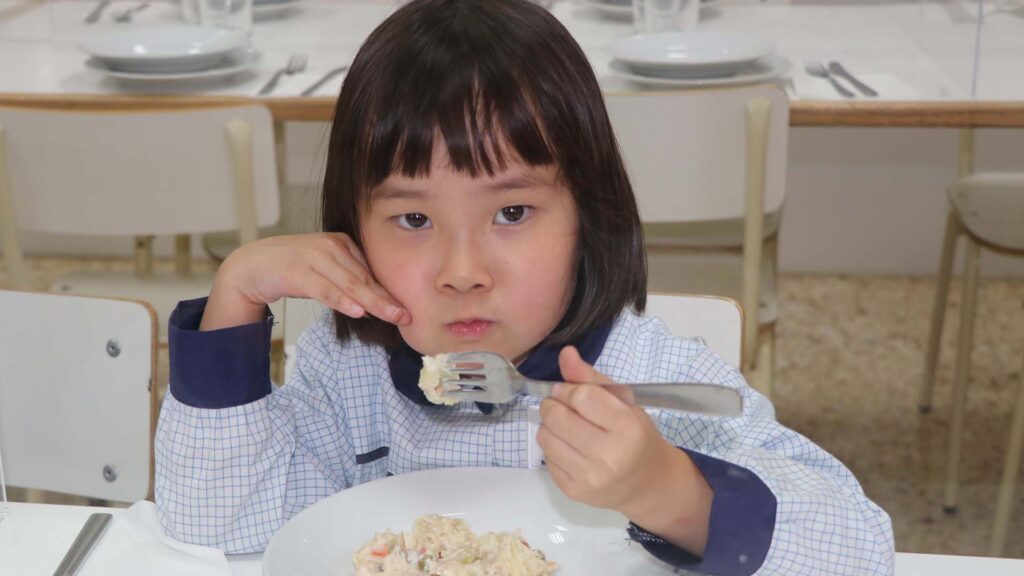
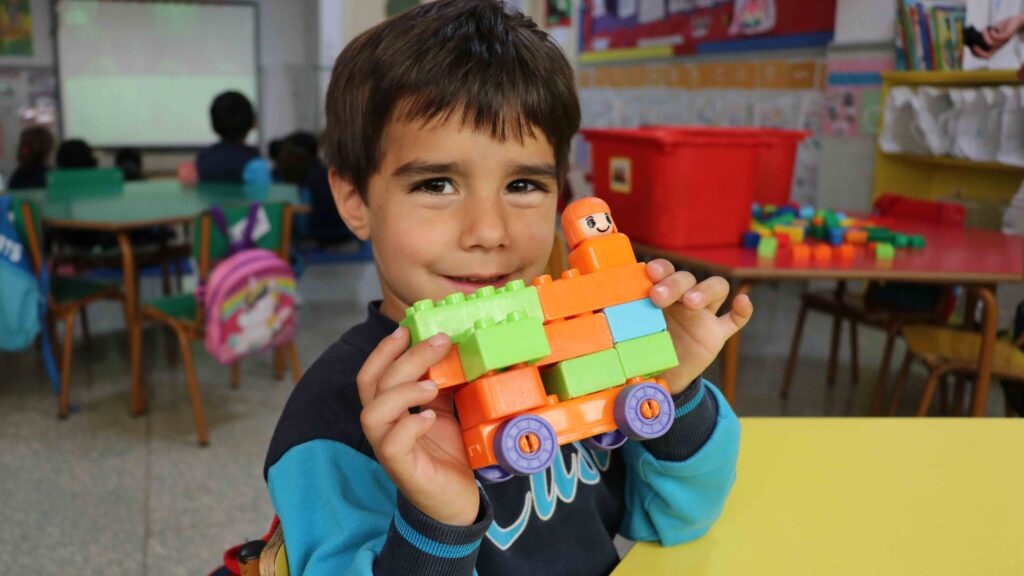
EARLY SCHOOLING IN CASVI VILLAVICIOSA
LANGUAGE DEVELOPMENT
Thanks to this stimulation, research and thinking skills are developed. As was the case in the 1st Cycle of Infant Education, it is promoted both in their mother tongue and in English. 100% in this language in the case of two of our 3 year old and 4 year old lines. A tool that is developed through conversation and learning English phonetics using the “Jolly Phonics” method. A great job that they demonstrate in the Trinity exams that are taken at school from the age of 4.
ACQUIRING HEALTHY HABITS
For this, collaboration and communication between the family and the school is fundamental.
AUTONOMY WORK
At Casvi Villaviciosa, in the infant education stage, we encourage pupils to be able to achieve things that are very important to them. For this reason, they are given the opportunity to experiment, with the aim of drawing their own conclusions.
READING AND WRITING
All of the above allows their reasoning and comprehension to be fostered and the learning of reading and writing to be real from the age of 4. The moment the child understands something he has discovered because it is written down, that learning becomes faster and in a more effective way. This is also the case for the promotion of reading habits.
SKILLS ACQUISITION THROUGH SCHOOLING IN 3-6 YEARS OLD IN CASVI VILLAVICIOSA
MATHEMATICAL SKILLS
Thanks to the schooling of pupils in 3-6 years of age, they continue with the mathematical stimulation programme they started in the 1st Cycle of Infant Education, where pupils not only memorise formulas and procedures, but also explore mathematical concepts in a practical and applied way. Problem solving and logical reasoning are encouraged. From an early age, children are immersed in the world of numbers and operations.
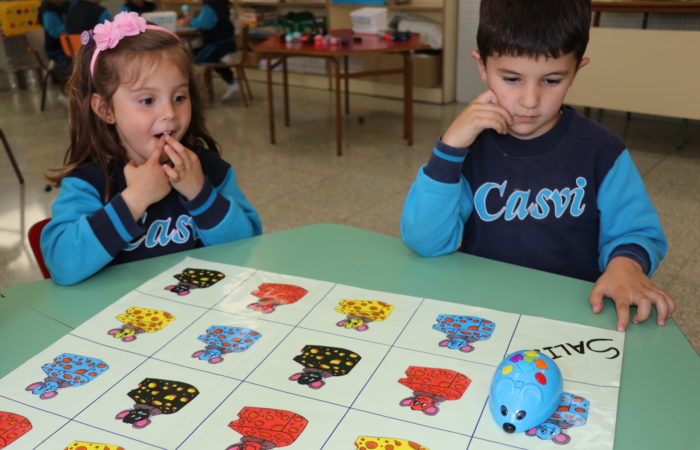
TECHNOLOGICAL SKILLS
Although the approach to them is carried out in the 1st Cycle of Infant Education, it is from the age of 4 when they are introduced to Robotics. project that they will not finish until they leave school to go to university.
SPORT AND BODY EXPRESSION SKILLS
Just like swimming, they are part of the life of Casvi Villaviciosa’s pupils from a very young age. In addition, there is a psychomotor stimulation room. It works on the body system, muscle tone, coordination, spatial orientation…
ARTISTIC AND MUSICAL SKILLS
At Casvi Villaviciosa International School we have a programme of artistic stimulation which is carried out from the age of 1 year. It encourages children from 4 and 5 years of age to create their own staves. On the other hand, artistic talent is developed by working with a wide variety of techniques. Techniques that allow art to be present at all times. Its use is evident in two major celebrations: Grandparents’ Day and the Graduation Party.
SCIENTIFIC SKILLS
Scientific curiosity is cultivated through early schooling. Students explore topics such as biology, physics and chemistry in an active way. They experience, observe and discover the world around them. Science becomes an exciting adventure.
SOCIAL SKILLS
Eurocolegio Casvi focuses not only on academic development, but also on social skills. Children learn to relate to their peers, to work as a team and to resolve conflicts constructively. Empathy and collaboration are essential values.
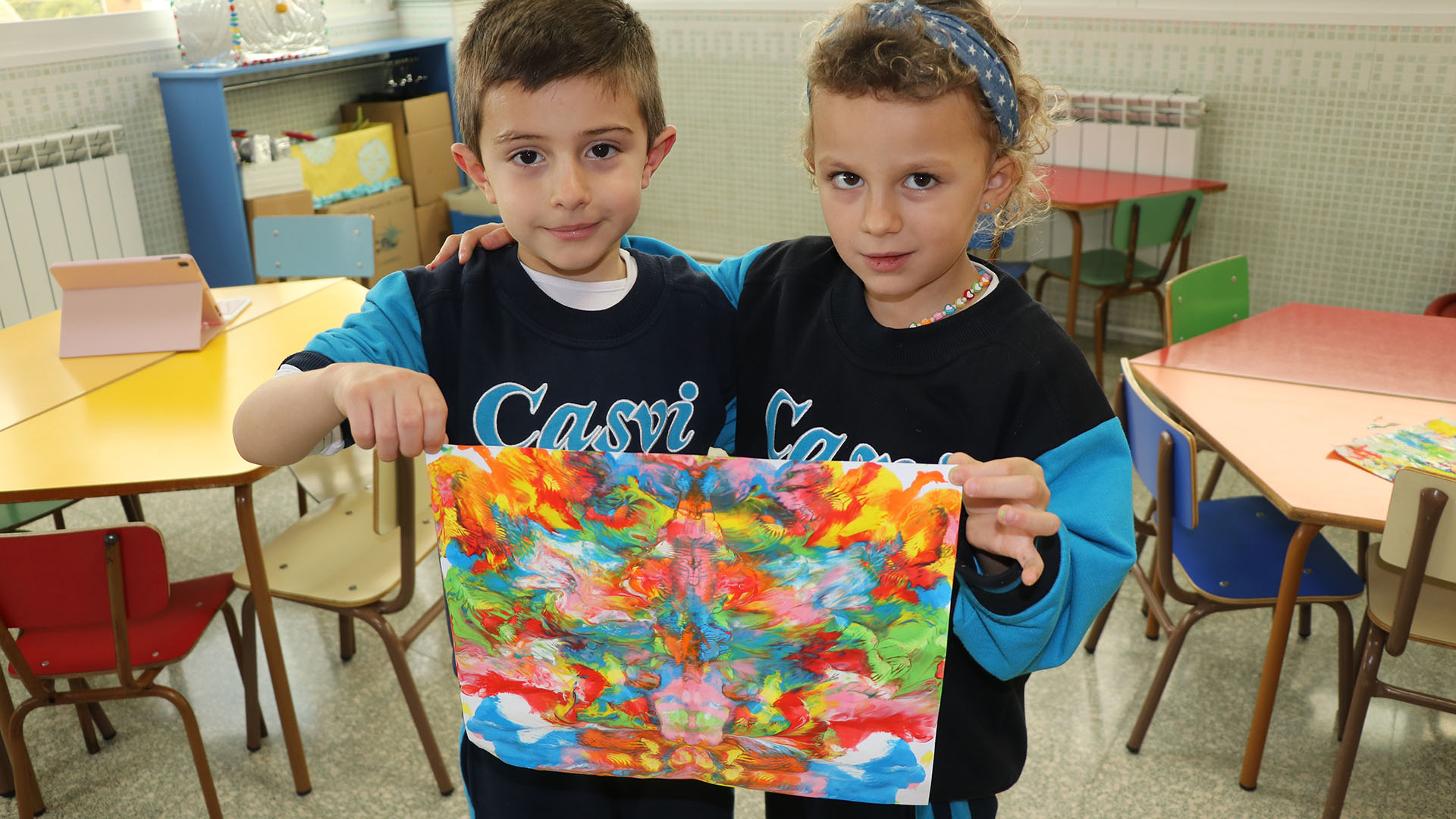
EARLY SCHOOLING AS A BASIS FOR A BRIGHT FUTURE
Early schooling is a great opportunity to build a solid foundation for lifelong success. A fundamental pillar for the integral development of children.
Let’s build a bright future through education!

